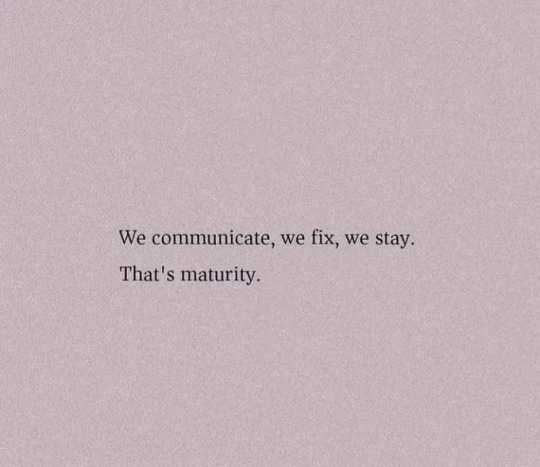#ConflictResolution
Explore tagged Tumblr posts
Text
Here is a photo of myself, Reem, standing before a painting of a man who embodies a profound narrative connected to my name, echoing the tragic yet touching story of another Reem from Gaza.

My name is Reem, like the little girl whose story echoes through the pain and beauty of loss. In Gaza, a grandfather mourns his granddaughter, his "soul of my soul," under the harsh reality of conflict. As bombs fall, his world crumbles, but his love stands immutable amidst the ruins. With each heartbeat, he carries the weight of her memory, her smile, her dreams unfulfilled.
He speaks of her with words heavy with grief but also with an immense love that transcends the boundaries of life and death. He calls her 'the soul of my soul,' a phrase that captures the essence of their bond, unbroken even by the brutality of war. Their story is not just a tale of loss but a call to remember the human spirits behind the headlines, the names, and faces of those who pay the ultimate price.

As the world moves on, their story persists, a poignant reminder of the resilience of love against the backdrop of despair. Let this image serve not only as a reflection of a shared name but as a tribute to every innocent life lost, every dream shattered, and every heart that continues to beat in defiance of oblivion."
#HumanRights#PeaceForGaza#StopWar#WorldPeace#Justice#LoveOverHate#ConflictResolution#GlobalIssues#StoriesOfHope#VoicesOfChange
181 notes
·
View notes
Text

Source: GazaNow Image: Al-Qassam terrorist continuing the war on day 116 firing an RPG at a tank in full civilian clothing
In the ongoing Gaza conflict, a concerning Hamas tactic has emerged. Terrorists, dressed as civilians and recognized as Al-Qassam fighters, blur the lines between combatant and non-combatant, escalating dangers for all.
This strategy complicates the Israeli soldiers’ ability to differentiate between threats, placing them and innocent bystanders in peril. It leads to tragic outcomes, where genuine civilians are indistinguishable from disguised combatants.
Furthermore, this tactic distorts casualty statistics, with combatants miscounted as civilians, skewing conflict perceptions and complicating peace efforts.
In a situation where any civilian might be a hidden combatant, soldiers face morally complex decisions. As we reflect on the ongoing turmoil since October 7th, it’s vital to condemn tactics that endanger lives and impede conflict resolution.
Upholding the laws of armed conflict is essential for protecting the innocent and working towards sustainable peace in the region.
Disclaimer: this post does not promote or support the actions taken in the imagine but instead aims to provide accurate reporting of incidents on the ground.
grouchomaccabee
#GazaConflict#CombatantDisguise#ProtectingCivilians#ConflictResolution#CombatantCivilianBlur#MoralDilemmas#PeaceEfforts#LawsofWar”#israel#gaza#jew#judaism#jewish#grouchospeaksout
72 notes
·
View notes
Text
🔪 The Sword: Symbol of Truth, Conflict, and Clarity 🔪
In the world of tarot, the sword isn’t just a weapon; it’s a mirror of our inner landscape. It speaks to the mind, truth, and the sharp edge of clarity that can reveal – or divide. When a sword appears in a reading, it often marks a time to cut through illusions, face conflict, or make a clear decision.
🗡️ The Sword in Tarot 🗡️
Swords make up one of the four tarot suits and embody the element of Air – our thoughts, words, and mental battles. They speak to the journey of our mind, covering everything from raw honesty to the tension we often face with change.
Ace of Swords 🌟 — The light of truth cutting through the fog. This card represents fresh insight and clear beginnings. When it appears, it’s a call to see things as they truly are, even if it requires courage.
Three of Swords 💔 — The sword’s wound. This card is painful but powerful, symbolising heartbreak and necessary endings. Here, the sword tells us that while some truths may hurt, they also bring release and healing.
Ten of Swords 🖤 — The darkest night, just before dawn. With ten swords piercing the figure, it can feel overwhelming, but it signifies an end to struggle and the start of renewal.
💬 Reflect on Your Own Journey
Consider how the energy of the sword has appeared in your life recently. Is there a truth you’re finally ready to face? Or perhaps a mental challenge you’re ready to release? The sword invites us to see clearly, even if the path it illuminates is sharp and confronting.
📸 Card Image for Inspiration

Let this image guide your reflection. Whether you’re facing new clarity, healing, or release, swords in tarot remind us that truth, however challenging, is the path to true freedom.
🔗 For deeper insights, visit facetofacetarot.blogspot.com.
💭 How has this symbol shown up in your life or readings recently? Share in the comments and let’s dive deeper together!
#Tarot#TarotReading#TarotCommunity#TarotSymbolism#TarotInsights#TarotCards#AceOfSwords#ThreeOfSwords#TenOfSwords#SwordSymbolism#TruthAndClarity#InnerJourney#SpiritualGrowth#SelfReflection#Mindfulness#FaceToFaceTarot#TarotGuide#TarotForBeginners#TarotWisdom#EsotericSymbols#AirElement#ConflictResolution#PersonalGrowth#TarotBlog#Divination
6 notes
·
View notes
Text
PSA on deescalation
Listen to the person! Yes, when people are angry they don't always communicate clearly and sometimes say things that they don't mean. But they are still intelligent human beings capable of knowing how they feel.
Leave the situation! If it's safe, leave the situation! It takes two to tango and it's harder to fight when you don't have an enemy anymore. If the person is telling you to leave you probably should.
Also you should almost never trap or prevent the other person from leaving! Letting someone who is upset leave allows them to get some space alone, get space from the conflict, feel safer, and get some adrenaline out by moving. You may feel it's not safe to leave the person or let the person leave. But try to balance those concerns with the fact that it's not fair to hold them hostage in a situation they don't feel safe in, at that point you're antagonizing them. Also you should respect that person's autonomy and judgement, they know themselves better than you do and often they want to avoid the conflict escalating as well.
Validate the other persons emotions! This helps show concern and make someone feel heard, which helps stem the conflict and stress. You don't have to apologize or deny what they did is wrong but express understanding and compassion for the distress they are feeling.
Express concern not judgement! If you think they "need help" ask if they "are okay?" ask if they need help. But don't tell them to "calm down."
Communicate your concerns! If you're concerned that safety of the the other person or other people if you leave the situation let them know. You might be able to work out a deal so that they walk a certain way so that you can see them get away safe. You can give them resources. This also communicates concern.



This all comes from what I've learned studying psychology and education. As well as from working in schools and mental hospitals. I don't have time right now to include references but if you curious about things mentioned I encourage you to look up deescalation techniques as well as the individual techniques I've mentioned.
#tips#safety#safety tips#emotion regulation#emotional regulation#stress management#parenting#conflictresolution#conflict resolution#frozen#fixer upper#anger management#anger issues#psa#deescalation#mental health#ableism#road rage#post#important#psychology#counseling#therapy
44 notes
·
View notes
Text
🌿 Peace isn’t the absence of conflict.

It’s the presence of understanding, dialogue and the courage to solve differences without war in our homes, teams, communities and world.
We won’t always agree.
But what if we focused less on "being right"?
And more on listening, learning and leading with empathy?
The Dalai Lama once said:
"Peace means solving these differences through peaceful means—through dialogue, education, knowledge, and humane ways."
In a world full of noise, be the calm voice.
In a workplace full of tension, be the bridge.
Peace is not passive. It's powerful.
#Leadership#Peace#ConflictResolution#EmotionalIntelligence#DalaiLama#Communication#Empathy#MindfulLeadership
2 notes
·
View notes
Text
youtube
Stoic Wisdom for Dealing with Difficult People: How to Stay Strong in the Face of Adversity
#StoicPhilosophy#DealingWithDifficultPeople#Stoicism#EmotionalResilience#PersonalDevelopment#HowToStayStrong#AdversityAndStrength#PhilosophyForLife#MindfulnessTechniques#OvercomingChallenges#StoicWisdom#ConflictResolution#SelfImprovement#CopingStrategies#MentalToughness#LifeLessonsFromStoicism#PhilosophyAndPsychology#HandlingDifficultSituations#StrengthInAdversity#StoicPrinciples#StoicQuotes#BuildingInnerStrength#EmotionalIntelligence#NavigatingDifficultRelationships#StoicMindset#ResilienceTraining#PhilosophyOfStoicism#CopingWithToxicPeople#SelfDiscipline#WisdomForLife
2 notes
·
View notes
Text
Ethical Evaluation of Donald Trump's Proposal to Take Over Gaza
"Donald Trump's proposal, as discussed in the context given, is fraught with ethical issues. It would not only violate numerous international laws and ethical standards but also potentially lead to increased conflict, human suffering, and diplomatic isolation. Ethical foreign policy should aim at peace, respect for human rights, and cooperative solutions to conflict resolution."
youtube
The discussion between Sam Stein and Tim Miller provides insights into the controversial proposal by Donald Trump to take over the Gaza Strip, as announced during his press conference with Benjamin Netanyahu.
Key points from their conversation
Trump's Proposal: Trump suggested that the U.S. would "take over" Gaza, effectively displacing the 1.8 million Palestinians living there to other countries like Jordan and Egypt. He described Gaza as a "demolition site" and proposed turning it into a lucrative development project, potentially with U.S. investment or ownership.
Seriousness of the Proposal: Stein emphasized that while Trump's statements could be seen as a negotiation tactic, the mere act of voicing such a plan publicly is significant. This proposal was seen as a radical departure from conventional U.S. policy, hinting at ethnic cleansing and forced displacement.
Political and Logistical Challenges: The logistics of such an endeavor were questioned, including the cost, the role of U.S. troops or mercenaries, and the political fallout both domestically and internationally. The idea of turning Gaza into a "Riviera of the Middle East" was criticized for its naivety and potential to incite further conflict rather than peace.
Reaction from Netanyahu: Netanyahu, while not fully endorsing Trump's plan, diplomatically praised Trump for thinking "outside the box." This indicates a strategic acknowledgment of Trump's rhetoric, possibly to leverage it in ongoing negotiations or to maintain a favorable U.S.-Israel relationship.
Ethical and Humanitarian Concerns: The discussion highlighted the dehumanizing implications of Trump's proposal, treating Palestinians as if they were "cattle" to be moved for development purposes. This raises significant ethical issues about the treatment of people and their rights to their homeland.
Public and Political Backlash: There's an expectation of backlash, not just from Palestinians but from Arab nations and possibly within the U.S., given the potential for this to be seen as an endorsement of ethnic cleansing. The discussion also touched on the political implications, especially for voters who supported Trump over Biden due to Middle East policy grievances, suggesting they might face regret over this decision.
Negotiation or Bluster?: The conversation oscillates between viewing Trump's statements as either a serious policy proposal or a tactic to pressure Hamas and other parties in negotiations. However, even if intended as bluster, the statements reveal a perspective on human rights and international relations that is deeply concerning.
This discussion underscores the complexity and the controversial nature of U.S. involvement in Middle Eastern politics, particularly with regards to the Israeli-Palestinian conflict. It also reflects the unpredictability and often provocative nature of Trump's foreign policy approaches.
Ethical Evaluation of Donald Trump's Proposal to Take Over Gaza
Human Rights Violations:
Displacement: The proposal to forcibly move 1.8 million Palestinians from Gaza to other countries raises severe human rights concerns. This would likely be seen as an act of ethnic cleansing or forced displacement, which contravenes international human rights law, including the Universal Declaration of Human Rights and the Geneva Conventions. The right to live in one's homeland, free from forced removal, is fundamental.
Right to Return: Trump's suggestion that Palestinians might not want to return because of the "hell" Gaza has become does not negate their legal and moral right to return to their homes. This right is enshrined in international law, particularly for refugees, which many Palestinians are considered.
Sovereignty and Self-Determination:
Violating Sovereignty: Taking over Gaza would infringe on Palestinian sovereignty and their right to self-determination, principles central to international law as outlined in various UN resolutions and international treaties. Any territorial change without the consent of the inhabitants would be considered a violation of these rights.
Colonialism and Imperialism: The proposal echoes historical practices of colonialism where foreign powers assume control over territories for economic or strategic gain, disregarding the indigenous population's rights and interests. This would be a step back from contemporary international norms against such practices.
Ethical Treatment of People:
Human Dignity: Treating people as if they can be relocated for the sake of "development" or "peace" undermines their dignity and autonomy. The proposal implies a lack of regard for the lives, histories, and identities of Palestinians, reducing them to mere obstacles in a development project.
Consent and Autonomy: No mention is made of consulting the Palestinian population about their future or giving them a say in their governance, which is ethically problematic. People should have the autonomy to decide their fate.
Peace and Conflict Resolution:
Long-term Peace: The proposal does not address the root causes of the conflict, which include land rights, statehood, and security. Instead, it might exacerbate tensions, leading to further violence rather than peace. Peace processes typically involve negotiation, respect for all parties' rights, and mutual agreement, none of which seem to be considered here.
International Relations: Such an action could severely damage U.S. relations with Arab nations and the broader Muslim world, potentially leading to increased terrorism or international isolation. It would also likely strain relations with allies who prioritize human rights and international law.
Economic and Environmental Ethics:
Exploitation for Profit: The notion of turning Gaza into a profitable real estate venture while displacing its people suggests an unethical prioritization of economic gain over human welfare.
Environmental Impact: Large-scale construction projects in conflict zones can have devastating environmental effects, further complicating the ethical landscape if not managed with care for sustainability.
Moral Responsibility:
Current Administration's Role: A policy of this nature would reflect poorly on the moral compass of the U.S. administration, suggesting a disregard for ethical governance. It would also place the U.S. in a position of responsibility for the welfare of displaced populations without a clear plan for their well-being.
In conclusion, Donald Trump's proposal, as discussed in the context given, is fraught with ethical issues. It would not only violate numerous international laws and ethical standards but also potentially lead to increased conflict, human suffering, and diplomatic isolation. Ethical foreign policy should aim at peace, respect for human rights, and cooperative solutions to conflict resolution.


#TrumpGazaPlan#GazaDisplacement#EthnicCleansing#HumanRightsViolation#PalestinianRights#RightToReturn#SovereigntyViolation#SelfDetermination#Colonialism#Imperialism#PeaceInMiddleEast#InternationalLaw#ForcedMigration#NetanyahuTrump#MiddleEastPolicy#HumanDignity#LandRights#ConflictResolution#USForeignPolicy#DevelopmentEthics#EnvironmentalImpact#MoralResponsibility#DiplomaticIsolation#Trump#potus#gazastrip#gaza#gaza genocide#gaza strip#free gaza
2 notes
·
View notes
Text

#Communication#Maturity#EffectiveCommunication#Relationships#Understanding#EmotionalMaturity#HealthyCommunication#ConflictResolution#MatureConversations#ImprovingRelationships#quotes
16 notes
·
View notes
Text

Reliable Workplace Conflict Resolution Services for Stability
Central HR delivers reliable Workplace Conflict Resolution Services to ensure stability in small and medium-sized businesses. Meena’s deep knowledge provides solutions that address conflicts while meeting Australian workplace standards. Our Workplace Conflict Resolution Services offer corporate-level reliability, promoting a harmonious and productive workforce. We provide practical, impactful resolutions that prevent disputes from disrupting operations.
1 note
·
View note
Text
An open letter to the U.S. Congress
No aid to Israel without conditions and humanitarian aid to Gazans!
1,085 so far! Help us get to 2,000 signers!
The World Health Organization warns that unless fighting in Gaza stops and substantially more aid is delivered immediately, the death toll there from hunger and preventable disease could overtake the number killed in the bombardment. Urgently addressing the humanitarian crisis in Gaza is not only a moral imperative but a vital US and Israeli national security priority. So I’m writing to ask that aid to Israel be passed ONLY alongside humanitarian relief and with necessary oversight measures to ensure our aid is used in compliance with US and international law—especially since Benjamin Netanyahu just rejected a carefully negotiated ceasefire proposal. He’s apparently fine with continued carnage in Gaza, but that doesn’t mean we should be, and it definitely doesn’t mean we should help pay for it. Leaders from all countries involved—especially the U.S.—should be focussed on getting the remaining hostages home, pressuring Netanyahu to step down, saving innocent people in Gaza, and working out a peace agreement that includes the establishment of a Palestinian state. More weaponry with no strings attached accomplishes none of that. Thanks.
▶ Created on February 7 by Jess Craven
📱 Text SIGN PNLDTT to 50409
🤯 Liked it? Text FOLLOW JESSCRAVEN101 to 50409
#JESSCRAVEN101#PNLDTT#resistbot#Congress#Aid#Israel#Humanitarian#Gaza#WorldHealthOrganization#NationalSecurity#USLaw#InternationalLaw#Ceasefire#BenjaminNetanyahu#Hostages#PeaceAgreement#PalestinianState#Negotiation#USForeignPolicy#HumanitarianCrisis#Oversight#Carnage#InnocentPeople#Warfare#Diplomacy#USAssistance#MiddleEast#ConflictResolution#ForeignAid#SecurityConcerns
2 notes
·
View notes
Text
Life Lens - Entry 249
When I’m in a disagreement, I’m not focused on “winning” the argument or proving I’m “right.” That’s not the point for me, and it’s definitely not my goal. What I really want is for us to reach a genuine understanding about the issue at hand. I want both of us to walk away feeling heard and understood, knowing that we’ve connected on a real level. For me, it’s not about competition or one-upping…
#ConflictResolution#EmotionalMaturity#HealthyCommunication#ListeningMatters#MutualRespect#NotACompetition#OpenDialogue#RealConnection#TheLoulouge#Understanding
2 notes
·
View notes
Text

Navigating Workplace Tensions: Mastering Conflict Management for a Harmonious Office
Explore the dynamics of workplace conflicts and learn effective strategies to manage and resolve them. This blog by Dr.Divya Bonigala, Corporate Trainer, delves into the causes of workplace disputes, from cultural and personal differences to conflicting goals, and offers practical tips for fostering understanding and cooperation among team members. Discover the key roles of conflict resolution styles and how they can be applied to create a more productive and positive work environment on https://www.protouchpro.com/guest-posts/effective-conflict-management-in-the-workplace/
2 notes
·
View notes
Text

The silent treatment may seem to be an easy way out, but it causes more damage. Open communication is the key to resolving conflicts and building trust. Let’s break the silence and strengthen our connections.
#HealthyRelationships#ConflictResolution#Asmr#Asmrcrunchy#Slimetutorial#Slimevideo#Asmrfood#Oddlysatisfyingvideo
1 note
·
View note
Text

“You see, a conflict always begins with an issue - a difference of opinion, an argument. But by the time it turns into a war, the issue doesn't matter anymore, because now it's about one thing and one thing only: how much each side hates the other.”
How do you think we can prevent disagreements from spiraling into deeper animosity? Have you witnessed or experienced situations where keeping the focus on the original issue could have prevented further conflict? I'd be interested to hear your thoughts and experiences on navigating disputes while maintaining respect and understanding.
3 notes
·
View notes
Text
He Don't Want No Smoke Dude Got Punched So Hard He Had To Dip Out The Window!
youtube
#NoSmoke#Confrontation#PhysicalAltercation#Escapade#PunchOut#UrbanCulture#Drama#ConflictResolution#UnexpectedExit#AltercationChronicles#Youtube
2 notes
·
View notes
Text
Biblical Wisdom for Handling Anger: Embracing the BULLETS Approach

Biblical Wisdom for Handling Anger: Embracing the BULLETS Approach
Dealing with anger is not easy.
Dealing with anger is an everyday challenge, and for Christians, it presents a unique opportunity to demonstrate Christ's teachings of love, patience, and humility. While conflict is inevitable, our response to it can either escalate or diffuse the situation. In this blog, Biblical Wisdom for Handling Anger, we explore the BULLETS acronym, combining practical advice with biblical wisdom, to navigate such encounters as peacemakers.
Embracing the BULLETS Approach
Be Seated When encountering anger, our first step is to seek a moment of calm. Psalm 37:8 advises us to refrain from anger and forsake wrath. By inviting the other person to sit, we create a space for peaceful dialogue. This act is not just about physical posture but an internal readiness to engage respectfully, reflecting Christ’s composure in times of conflict. Use the Person's Name In addressing someone by name, we follow Christ's example of personal engagement, as seen in His interactions with Peter (John 21:15-17). This approach shows respect and attentiveness, essential in affirming the individual's worth, irrespective of their behavior. Lower Your Voice "A soft answer turns away wrath, but a harsh word stirs up anger" (Proverbs 15:1). Our tone can either soothe or aggravate a situation. By consciously lowering our voice, we extend an olive branch, inviting a shift from hostility to dialogue. Listen Active listening is a cornerstone of effective communication. As James 1:19 advises, we should be "quick to hear, slow to speak, slow to anger." This means genuinely striving to understand the root of the other person's anger and acknowledging their feelings, creating an environment conducive to healing. Eliminate Humor Humor, especially in tense situations, can be misinterpreted as insensitivity. Ephesians 4:29 reminds us to use words that build up and fit the occasion. Our goal is to show empathy and seriousness, ensuring the other person feels heard and respected. Talk, Don't Argue James 3:17 celebrates the wisdom that is peaceable and open to reason. In conflicts, our aim is not to win an argument but to seek mutual understanding and resolution. We should communicate our perspectives respectfully, fostering an atmosphere conducive to problem-solving. Slow Down Patience is a virtue that allows for thoughtful and effective communication. Slowing down our speech rate is a practical way of modeling calmness, encouraging both parties to engage in a rational and respectful manner. So, How Will You Apply Biblical Wisdom for Handling Anger? Our role as Christians extends beyond personal salvation to being ambassadors of Christ's love and peace, especially in handling conflicts. By applying the BULLETS approach, we can navigate through anger and conflict with grace and wisdom. May we always strive to be peacemakers, embodying Christ's teachings in every interaction. Let us commit to using communication as a tool for healing and reconciliation, bringing about God's kingdom on Earth as it is in Heaven.
Join the Lessons for Life Monthly Membership
Embark on a transformative journey with our "Lessons for Life" membership. For only $7/month, gain access to on-demand training, tools, teachings, and resources, all designed to help you navigate life's challenges with biblical wisdom and practical solutions. Whether you're facing personal struggles, seeking spiritual growth, or need guidance in complex situations, our supportive community and the i3A framework will guide you toward a life-changing encounter with Christ. Benefits Include - Biblically-based guidance for real-life problems. - Practical application of each lesson. - Supportive, like-minded community. - Live Q&A sessions, expert guests, community coaching, and connection calls. Transform Your Life Today Join now and be part of a community committed to personal and spiritual growth. Experience the power of transformation through faith, shared wisdom, and mutual support. Click here to join the Lessons for Life Membership. Read the full article
#EffectiveCommunication#biblicalwisdom#AngerManagement#ChristianLiving#ConflictResolution#Peacemaking
2 notes
·
View notes